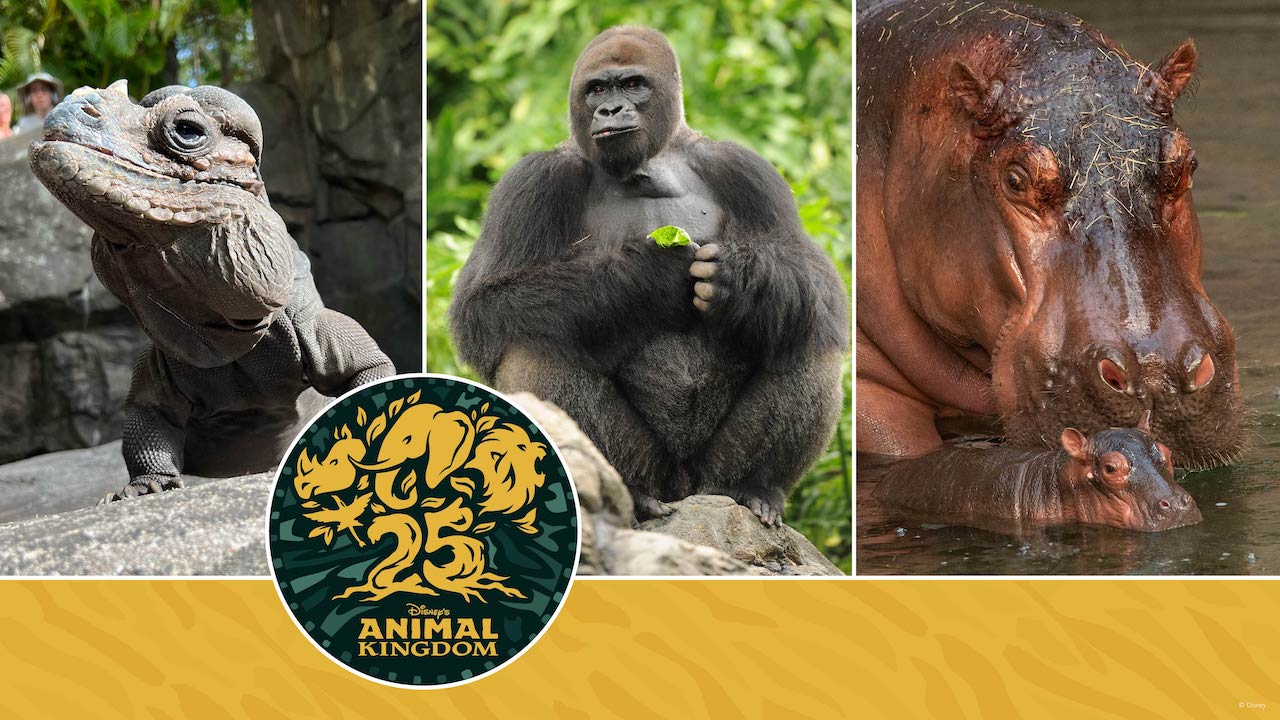When you think of a milestone anniversary of a Disney theme park, you might reflect on a thrilling attraction you rode on opening day, memorable performances that left you breathless or cast members who made your visit magical.
But at Disney’s Animal Kingdom Theme Park, which is preparing to celebrate its 25th anniversary on April 22, guests often are surprised to learn about the animals who’ve been here since the park opened on Earth Day in 1998. Overall, there are 45 animals who have been with us since day one – some of which arrived almost a year before opening! This is a huge testament to the level of care provided by our cast members and the relationships our keepers have with the animals.
For the first time ever, we’d like to shine the spotlight on a few of the opening-day animals you can see around the park.
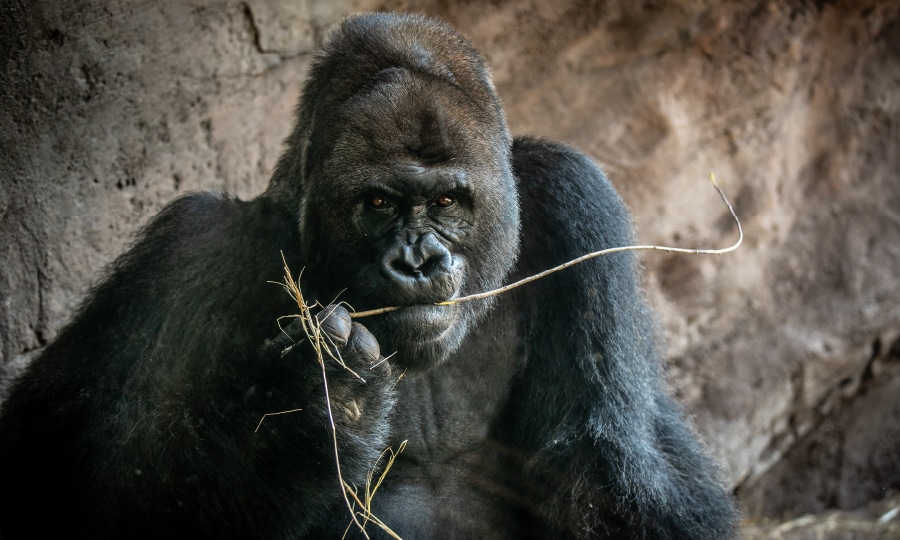
Gino – Western lowland gorilla
For most of our guests, Gino needs no introduction. Typically seated atop his rock, locking eyes and engaging with the millions who come to visit him, he stands out to many as an icon for the park.
Gino is not only the oldest gorilla at Disney’s Animal Kingdom at 42 and the silverback of the family troop, but he’s also a pioneer and ambassador for his species. Gino’s participation in his own care – as one of the first gorillas in the world to allow his caretakers to perform cardiac ultrasounds without anesthesia – has enabled his keepers to train and develop important techniques which benefit gorillas in managed care around the world.
But he’s not all work and no play. Hardly! Gino still enjoys playing and wrestling with his juvenile sons and is an attentive father to his daughters Grace and Ada, making him a model father and troop leader.
Fun Fact: Gino isn’t the only western lowland gorilla to call Disney’s Animal Kingdom home since 1997. Kejana, Zawadi and Gus in the bachelor troop on the other side of Gorilla Falls Exploration Trail presented by OFF! Repellents were present for opening day of the park, too!
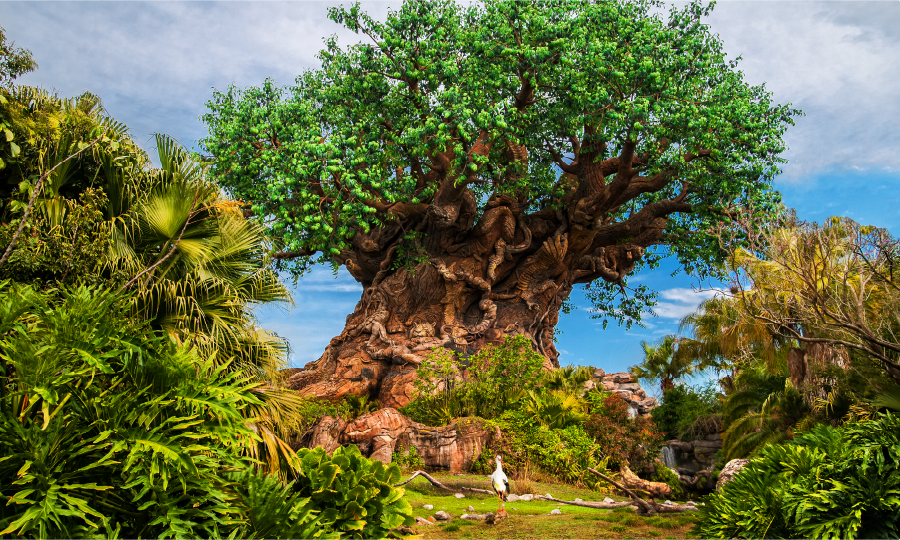
Johnny – White stork
Over on Discovery Island, you might have overlooked a white stork named Johnny. While he might not immediately be at the top of your mind, he very likely may be in your family photo album!
Since his habitat is located at the base of the Tree of Life, one of the most popular photo spots in the park, Johnny often has inadvertently photobombed guests for 25 years. And though much has changed around him during that time, Johnny has been a constant presence.
Standing over three feet tall, Johnny is easy to spot and currently shares his habitat with kangaroos and vultures.
Is Johnny in one of your family photos from the last 25 years? Share it with us in the comment section!
Fun Fact: White storks have a wingspan about the size of Mickey Mouse (over five feet).
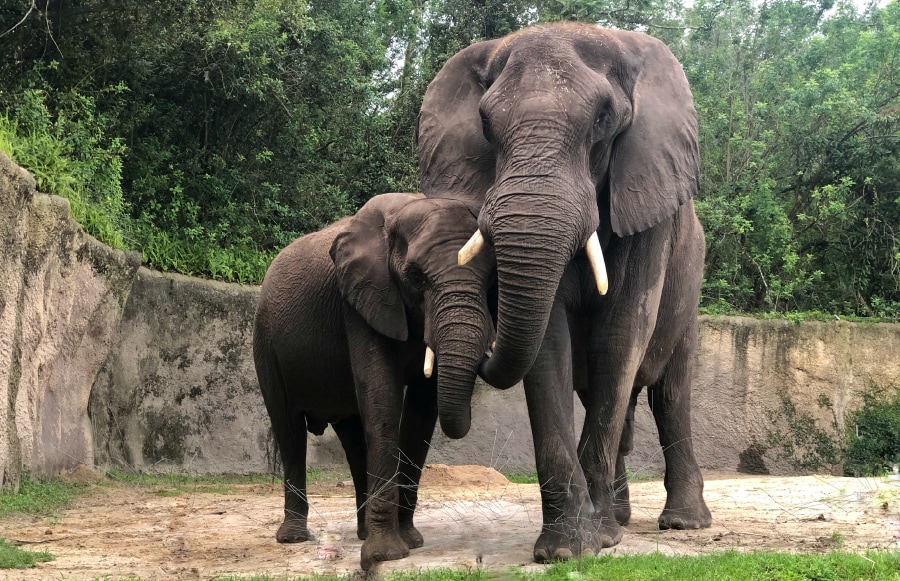
Mac – African elephant
Tipping the scales at nearly 13,000 pounds, Maclean is the largest of the heritage animals – and all the animals – at Disney’s Animal Kingdom. Affectionately known as “Mac” to his keepers, this titan is most often spotted by guests on Kilimanjaro Safaris. Mac is the father of Luna and Stella, and he is one of nine elephants in the herd on Harambe Wildlife Reserve.
Elephants are highly intelligent and able to communicate with each other through a variety of sounds, some of which are made at such a low frequency they cannot be heard by human ears. Through caring for elephants like Mac, Disney scientists have been able to study the vocalizations of elephants to learn how they communicate. This knowledge helped the nonprofit organization Save the Elephants to expand the Elephants and Bees project which helps promote coexistence between humans and African elephants in Kenya.
Fun fact: When he’s not receiving specially designed and nutritious birthday cakes, Mac often waves to his keepers with the tip of his trunk to get attention or extra treats.
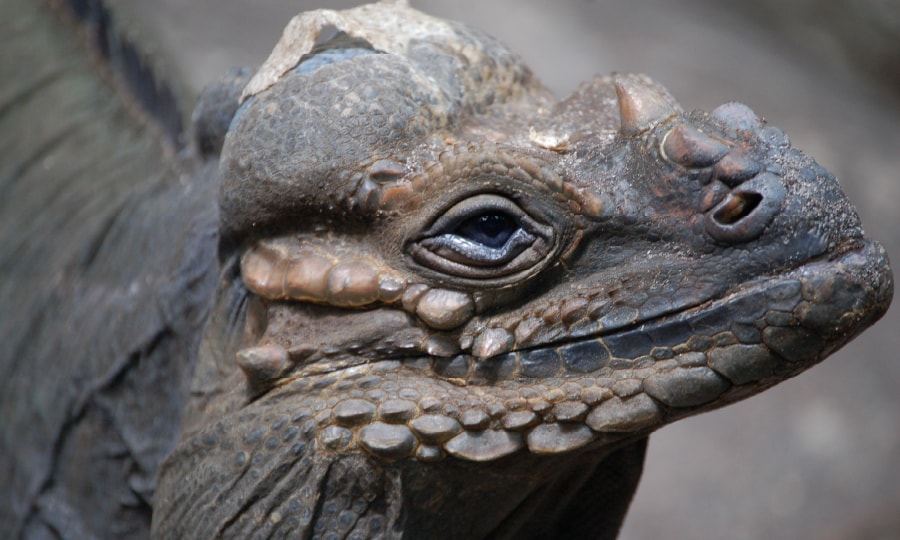
Sid – Rhinoceros iguana
Half rhinoceros, half iguana …just kidding! ALL iguana, Sid and other rhinoceros iguanas get their name from their rhino-like “horns.” These horns are actually scales, and scientists still aren’t quite sure what they’re used for, although it’s assumed they’re for courtship and displaying dominance.
Described as “intelligent, and large and in charge” by his keepers, Sid can be found in The Oasis, located at the very front of the park. Guests often are shocked to hear Sid is in his 40s, which is a testament to the incredible level of care he receives at Disney’s Animal Kingdom.
Fun fact: As a reptile, Sid will regulate his body temperature by moving into the shade to cool down and basking in the sun to warm up. For the cooler days, he has a specially heated rock for extra warmth!
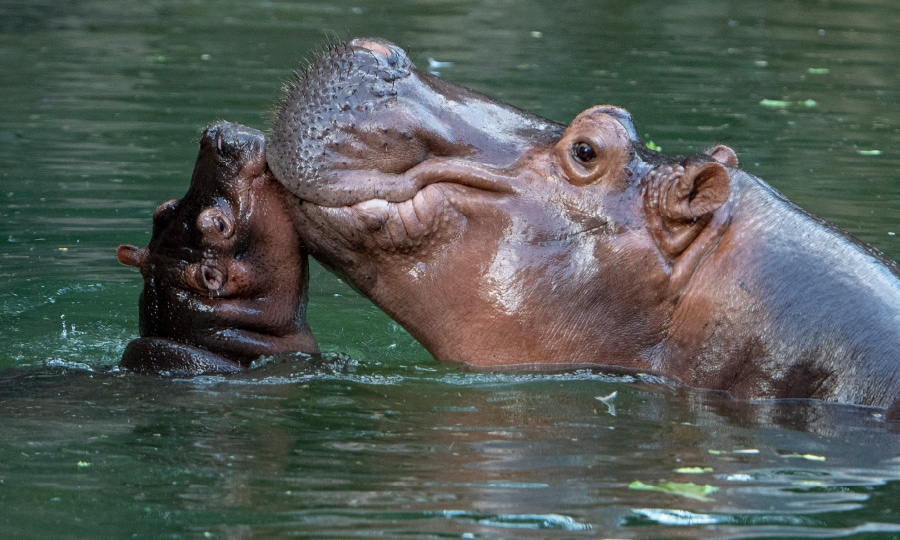
Tuma – Nile hippopotamus
Did you know five members of the hippo bloat have been here for 25 years? Tuma is the youngest of the five, and she’s affectionately known as “Tuma Toes” to her keepers because of pink spots near her toes.
Tuma was just over a year old when she arrived at Disney’s Animal Kingdom three months before the park opened to guests in 1998, and now she’s a proud mom to five-year-old Augustus and nearly-two-year-old Greta. These births are important contributions to the worldwide conservation and understanding of these amazing animals, and they help create healthy, genetically diverse populations for years to come.
Hippos are generally calm and seem to enjoy working with the animal keepers as they participate in their own medical care, ranging from positioning their body for physical exams to dental work.
Fun fact: Hippos can sleep underwater thanks to a reflex that allows them to come up for breaths and sink back down without ever waking up.
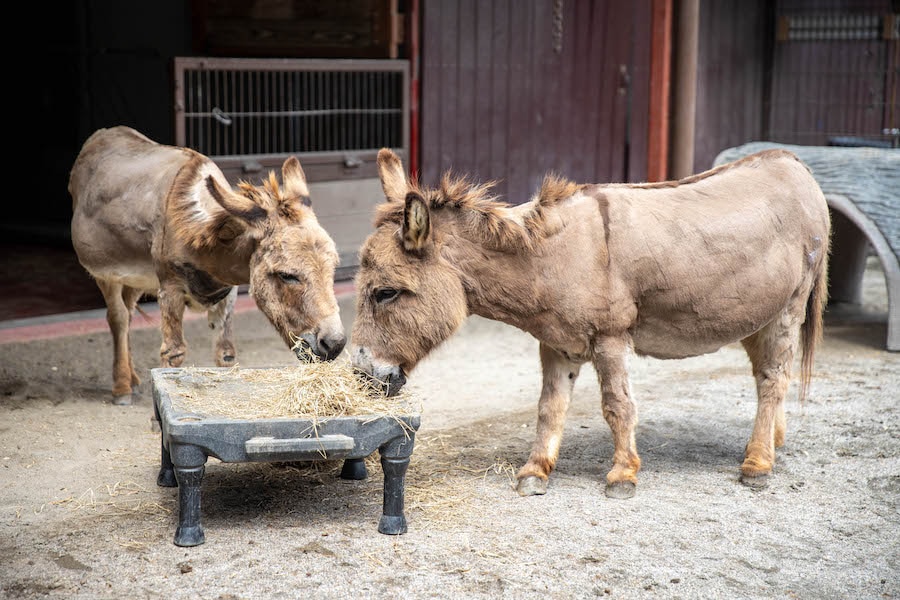
BONUS: Jack and Jill – Miniature donkeys
We just couldn’t leave this adorable pair of miniature donkeys off this list! If you’ve visited Affection Section at Rafiki’s Planet Watch, you’ve likely seen Jack and Jill and heard their loud vocalizations, known as braying.
And just like the nursery rhyme, they prefer to do everything together – including sharing conservation messages. Wearing customized halters showcasing their status as opening-day animals, Jack and Jill can demonstrate how donkeys in Colombia would carry small trees in their saddles to help replenish South American rainforests where endangered cotton-top tamarins live.
Fun fact: Both donkeys receive routine medical care including dermatology and even acupuncture to keep a bounce in their step.
Join us on Earth Day as we celebrate this milestone 25th anniversary of Disney’s Animal Kingdom and the 200 species that call it home. And stay tuned to the Disney Parks Blog for another species that has been at the park since opening day … the human kind!
